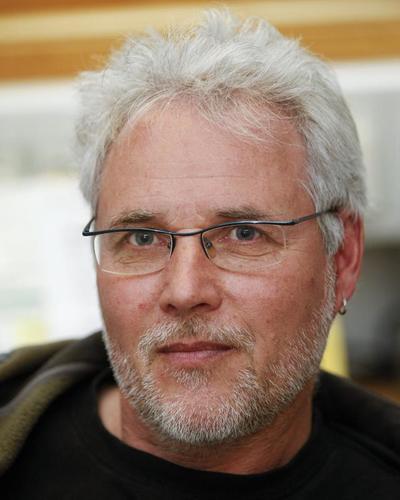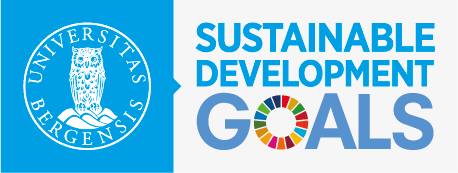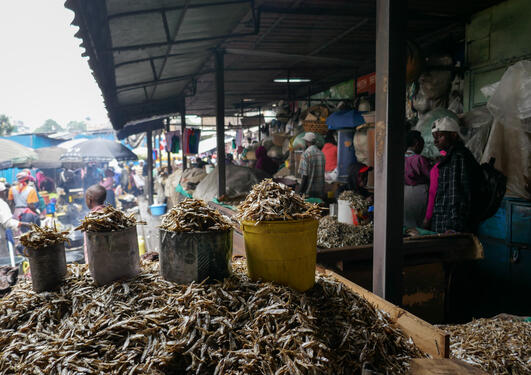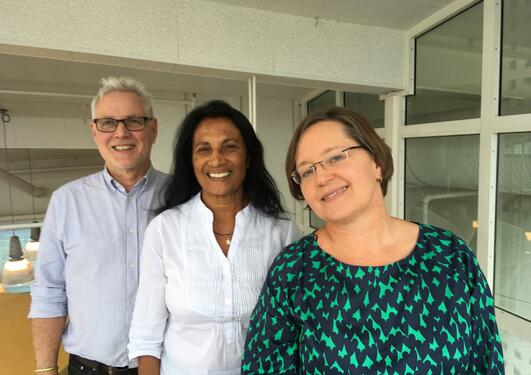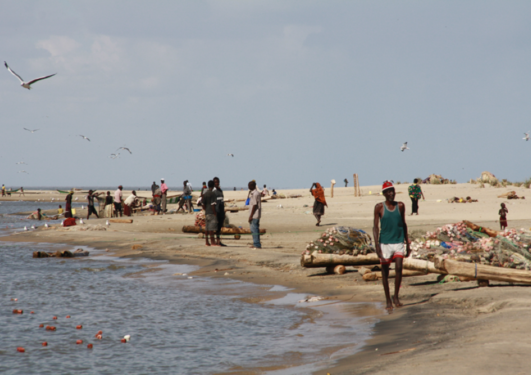More sustainable fisheries through better management
How do climate and land-use changes influence fish catch in lakes? That has been at the centre of a major international study which urges policymakers to increase funding for land and water management to create a more sustainable fisheries industry.

Main content
Professor Jeppe Kolding from the University of Bergen is co-author of the just published paper “Effects of climate and land-use changes on fish catches across lakes at a global scale” in the journal Nature Communications, with Dr. Yu-Chun Kao from Michigan State University in the US as first author.
“Our studies found that decreases in fish catch could be associated with either increases or decreases of a climate or land-use driver,” says Kolding about the study, which started in 2016 and brought together a team of researchers from 28 research institutes in 19 countries.
Freshwater lakes are in general the most diverse ecosystems on earth, and the lakes studied have very different fishery types as well as surrounding environment. This diversity allowed the team of researchers to identify the characteristics of lakes where fish catches can be vulnerable to climate and land-use changes, which again has implications for identifying vulnerable lake fisheries around the globe.
Analysing long-term data
The team analysed long-term data for 31 lakes across five continents, showing that fish catches can respond either positively or negatively to climate and land-use changes.
“Despite their global importance to food security and livelihoods, our knowledge on how lake fisheries respond to climate and land-use changes at a global scale is limited,” says Kolding.
“We found that effects of a climate or land-use driver, such as air temperature, on lake environment could be relatively consistent in directions, but consequential changes in a lake-environmental factor, such as water temperature, could result in either increases or decreases in fish catches across lakes.”
A need to invest in better management
The subsequent regression analysis indicates that fish catches in lakes located in areas with more access to clean water are less vulnerable to climate and land-use changes.
“One of our recommendations from this study is that adequate and appropriate investments in improved land and water management, such as water quality protection and water-use efficiency, can make lake fisheries production more sustainable,” says Kolding about the study, which provides advice to policymakers on action towards Sustainable Development Goal 6 (SDG6): Clean Water and Sanitation, which can also provide additional benefits to lake fisheries and food security.
Kolding is a biologist who has long engaged with small fish, small-scale fisheries and nutrition in developing countries, and in 2018 received funding from the EU for his SmallFishFood project, and he has both done research on ocean-based small-scale fisheries and lake-based small-scale fisheries.
The SmallFishFood project is a partnership between the University of Bergen in Norway, CSIR Food Research Institute in Ghana, the German Federal Institute for Risk Assessment (BfR), the Kenya Marine and Fisheries Research Institute, the Institute of Marine Research in Norway, Wageningen University and Research in the Netherlands, the University of Ghana, NaFIRRI in Uganda, and the University of Amsterdam in the Netherlands. There are also associate partners from a number of countries and global NGOs.
